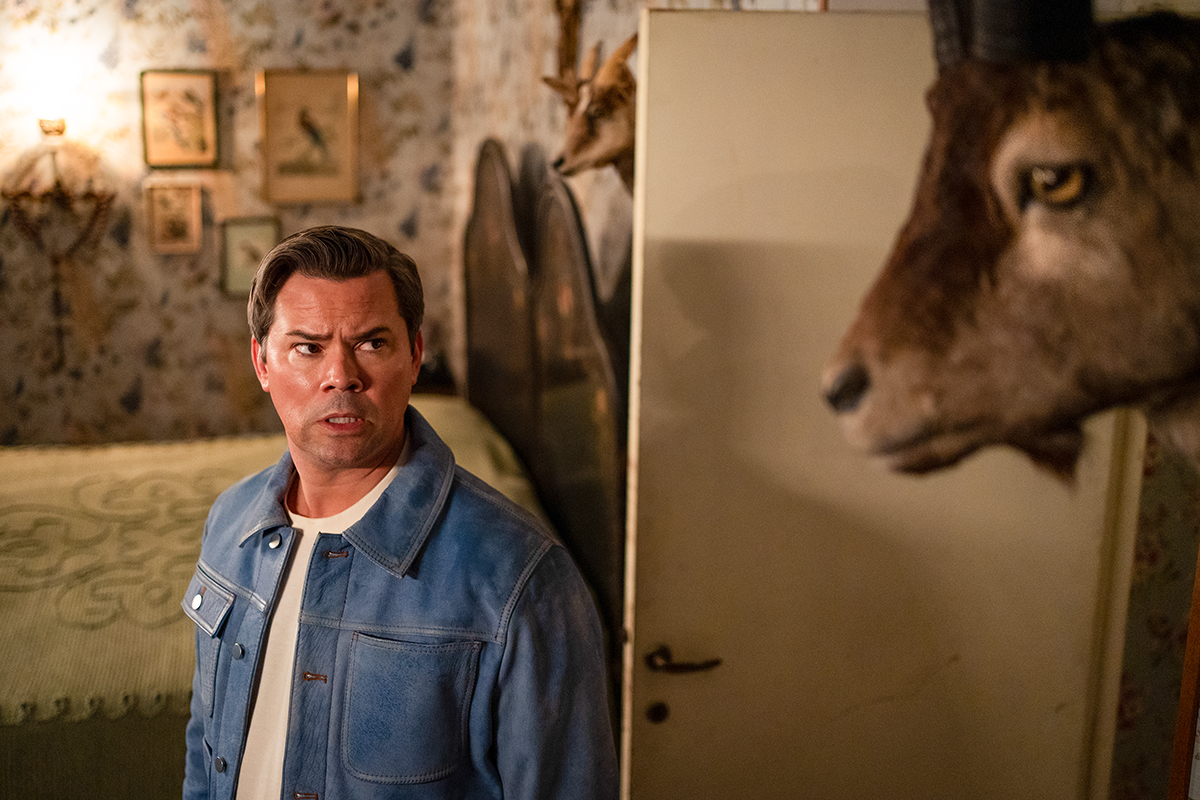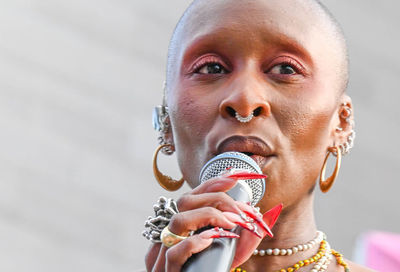‘Shrinking’ Review:Grief Therapy
"Shrinking," the latest Apple TV+ series from the team behind "Ted Lasso," wants to make grieving funny.

In the age of prestige television, comedy can’t just be funny. It has to be deep or meaningful, otherwise how is it going to win awards or garner acclaim from critics or the masses?
Shrinking (★★★☆☆), the latest Apple TV+ dramedy from Jason Segel and Ted Lasso alums Brett Goldstein and Bill Lawrence, is all about grief, which isn’t exactly the best fodder for great comedy, especially when it isn’t done perfectly.
Segel stars as Jimmy Laird, a therapist reeling from the untimely death of his wife, leading him down a pathway of drugs while ignoring everyone around him. The first and foremost of those ignored is his daughter, Alice (Lukita Maxwell), who rightfully hates her father for going off the deep end without her, and has given up on him entirely.
Their neighbor Liz (an insanely funny Christa Miller), picks up the parenting duties for the Lairds, being the only voice of authority for both of them.
At his job, Jimmy is packed with patients who seemingly have a clear way through their problems, like Grace, played by a surprisingly delicate Heidi Gardner, who can’t leave her emotionally abusive husband, or the veteran Sean (Luke Tennie), who can’t understand how to deal with all his anger from his time overseas. After an all-night drug binge inspires Jimmy to begin an unethical treatment with his patients, like telling Grace to just get a divorce, or taking Sean to physically fight, he feels a spark of change to try and actually do better.
Jimmy’s attempts at this new approach quickly backfire, with one patient ending up in jail and Jimmy getting beaten up by an angry ex of a patient at his daughter’s soccer game. When his mentor, Dr. Paul (the amazing Harrison Ford), finds out, he quickly shuns him, while Jimmy’s coworker Gaby (Jessica Williams) tries to direct him into fixing things at his home before his work.
Thus, Shrinking sets course on its main objective, to tell a story about a group of family and friends grieving while trying to move on with their lives.
Despite the comedic title attached to it, there isn’t a lot to laugh about, especially in the first few episodes. Segel’s character is wholly unlikeable, which, mixed with the underwritten characters, makes it hard to root for anything and care enough to keep the show going.
The tonal inconsistencies of Shrinking are a problem that follows the series throughout the first season, even as it does ultimately improve as a whole. Characters like Jimmy’s daughter feel cartoonishly shallow at times, but get fleshed out when they are allowed to simply exist and be a real human.
The show wants you to feel for it really, really badly, which makes its humor come off stale when it’s positioned between incredibly sad moments that don’t hit as hard as the show thinks it does. When the comedy does start working, sad scenes that don’t really go anywhere feel thrown in and forced, which can ruin the good going for it.

What saves Shrinking from falling into a pit of despair is its cast, who do all the work making the show likable in any way. Ford and Williams as Jimmy’s coworkers get to shine when they feel like real humans and not just plot devices. A lot will be said about Ford, who is not only continuously funny, but shows how strong the show can be when it turns itself down and doesn’t try to jump through unnecessary hoops.
As Paul, Ford gets to be a perennially grumpy mentor, but also a father struggling with his Parkinson’s diagnosis and his age, all while not imploding everything around him.
Brian, Jimmy’s best friend, portrayed by Michael Urie, helps provide humanity for Segel’s depressed character as a friend confused at how to help someone he cares about who has completely shut him out, showing how grief affects those around us without shoving it down our throats.
The humanity in Shrinking works best when it isn’t forced, even as the show makes huge swings. These big swings would work better if they didn’t feel textbook, especially in the comedic beats, which feel too cookie-cutter more often than not. The drama and grief at the center of Shrinking sometimes hits hard, but there are too many episodes that end with not really anything to say. By the end of the first season, we really haven’t learned anything new or profound about grief.
The parts of Shrinking that work best don’t exactly seem like the parts that were supposed to work best. Small moments between side characters pack way bigger punches than the climatic epiphanies that bookend the episodes, which doesn’t seem intentional. There is a lot to love about Shrinking, just not enough substance to back it up.
New episodes of Shrinking are available every Friday, exclusively on Apple TV+. Visit tv.apple.com.
Support Metro Weekly’s Journalism
These are challenging times for news organizations. And yet it’s crucial we stay active and provide vital resources and information to both our local readers and the world. So won’t you please take a moment and consider supporting Metro Weekly with a membership? For as little as $5 a month, you can help ensure Metro Weekly magazine and MetroWeekly.com remain free, viable resources as we provide the best, most diverse, culturally-resonant LGBTQ coverage in both the D.C. region and around the world. Memberships come with exclusive perks and discounts, your own personal digital delivery of each week’s magazine (and an archive), access to our Member's Lounge when it launches this fall, and exclusive members-only items like Metro Weekly Membership Mugs and Tote Bags! Check out all our membership levels here and please join us today!



























You must be logged in to post a comment.